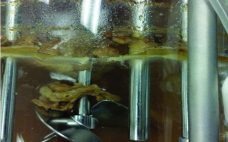Biotherapeutic proteins usually are produced by either fed-batch or perfusion processes. Perfusion manufacturing can provide much higher levels of productivity than fed-batch systems can, thereby reducing production costs. A 2013 study showed that perfusion is more cost effective than fed-batch processes for most combinations of titers and production volumes (1). Moreover, because a perfusion process is much closer to steady state than is a fed-batch process, it often produces a more consistent product — especially for molecules that are sensitive…
Author Archives: Paul Jorjorian
Ask the Expert: Top Five Considerations in Outsourcing to a Biomanufacturing Partner
In BPI’s 5 October 2016 webcast, Paul Jorjorian (director of global technology transfer at Patheon) discussed his top five considerations for companies outsourcing to a biomanufacturing partner. Jorjorian’s Presentation Selecting a contract and development manufacturing organization (CDMO) is an important decision for many biopharmaceutical companies. Beyond time and cost, here are some other criteria to consider. The number-one issue is quality. Is your company’s definition of quality the same as a CDMOs — and if not, how do those definitions…
On-Demand Product Development Teams
A BPI Theater Roundtable at the 2016 BIO Convention On Wednesday, 8 June 2016, Joshua Speidel (managing director of the commercial practice team at the Latham Biopharm Group) chaired an afternoon roundtable titled, “On- Demand Product Development Teams.” He brought together a panel of four experts: Matt Rebold (director of business development at ICON Imaging and Technology — West Coast) Paul Jojorian (global head of technology transfer for Patheon Biologics) Eiry Wyn Roberts (vice president of research and development for…
Seeking the Next Generation of Single-Use Technologies
Recent trends in biomanufacturing technology and the biopharmaceutical market are driving the increased adoption of single-use (SU) manufacturing systems. From the demand side, the biopharmaceutical industry’s focus on niche and rare diseases with relatively small patient populations is pushing for smaller, more flexible biomanufacturing capacities than have been needed in the past. The entry of many companies into biosimilars development also is leading to fragmentation and dispersion of manufacturing capacity. Changes on the supply side caused by technological advances have…

